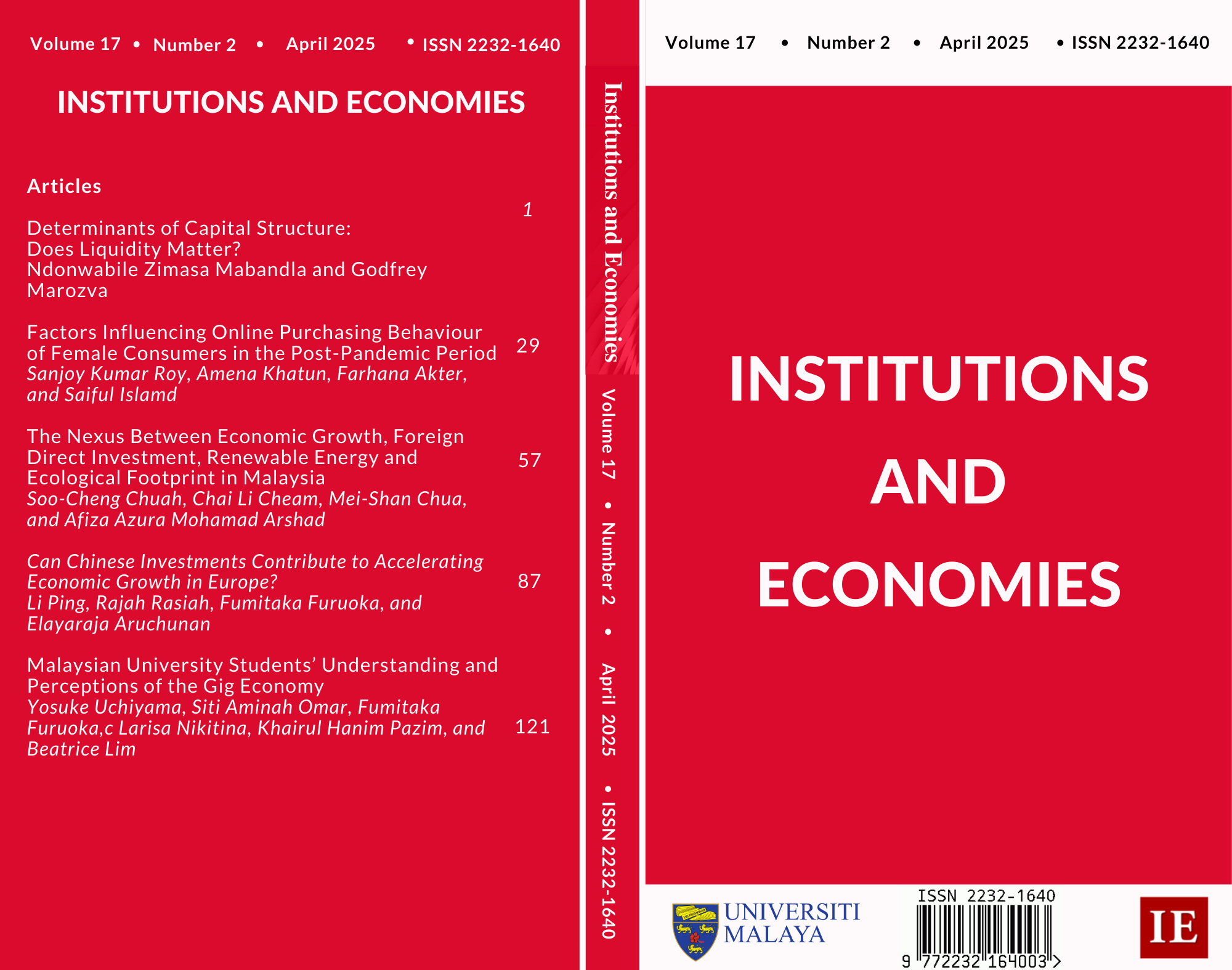Can Chinese Investments Contribute to Accelerating Economic Growth in Europe?
Main Article Content
Abstract
This study investigates the impact of Chinese outward foreign direct
investment (FDI) on the economic growth of 27 European countries from 2004 to
2021, amid concerns about China’s increasing economic influence in Europe. This
study employs systematic econometric methods, including the LLC and IPS tests for
stationarity, Kao and Pedroni cointegration tests, fully modified ordinary least squares
(FMOLS) and dynamic ordinary least squares (DOLS) for long-term effects, and the
ARDL test for short- and long-term effects. The findings further supported by Panel
Granger causality test, one-way and two-way fixed effect models, and dynamic panel
models, suggest a significant positive impact of trade openness and fixed capital on longterm
European economic development. The study also reveals that while Chinese FDI
and trade openness primarily influence economic growth in the long run, fixed capital
has both short and long-term effects. Moreover, a sensitivity analysis of rich and poor
European nations confirms these patterns, emphasising the role of trade openness and
fixed capital in promoting sustainable economic growth. The study suggests a balanced
approach to leveraging FDI, highlighting the importance of policy measures that
encourage trade openness and fixed capital investment to enhance economic development
in Europe.
Downloads
Article Details
Submission of a manuscript implies: that the work described is original, has not been published before (except in the form of an abstract or as part of a published lecture, review, or thesis); that is not under consideration for publication elsewhere; that its publication has been approved by all co-authors, if any, as well as tacitly or explicitly by the responsible authorities at the institution where the work was carried out. Transfer of copyright to the University of Malaya becomes effective if and when the article is accepted for publication. The copyright covers the exclusive right to reproduce and distribute the article, including reprints, translations, photographic reproductions, microform, electronic form (offline and online) or other reproductions of similar nature.
An author may self-archive the English language version of his/her article on his/her own website and his/her institutions repository; however he/she may not use the publishers PDF version which is posted on www.ijie.um.edu.my. Furthermore, the author may only post his/her version, provided acknowledgement is given to the original source of publication and a link must be accompanied by the following text: The original publication is available at www.ijie.um.edu.my.
All articles published in this journal are protected by copyright, which covers the exclusive rights to reproduce and redistribute the article (e.g. as offprint), as well as all translation rights. No material published in this journal may be reproduced photographically or stored on microfilm, in electronic database, video disks, etc., without first obtaining written permission from the publishers. The use of general descriptive names, trade names, trademarks, etc., in this publication, even if not specifically identified, does not imply that these names are not protected by the relevant laws and regulations.
The copyright owners consent does not include copying for general distribution, promotion, new works, or resale. In these cases, specific written permission must first be obtained from the publishers.

